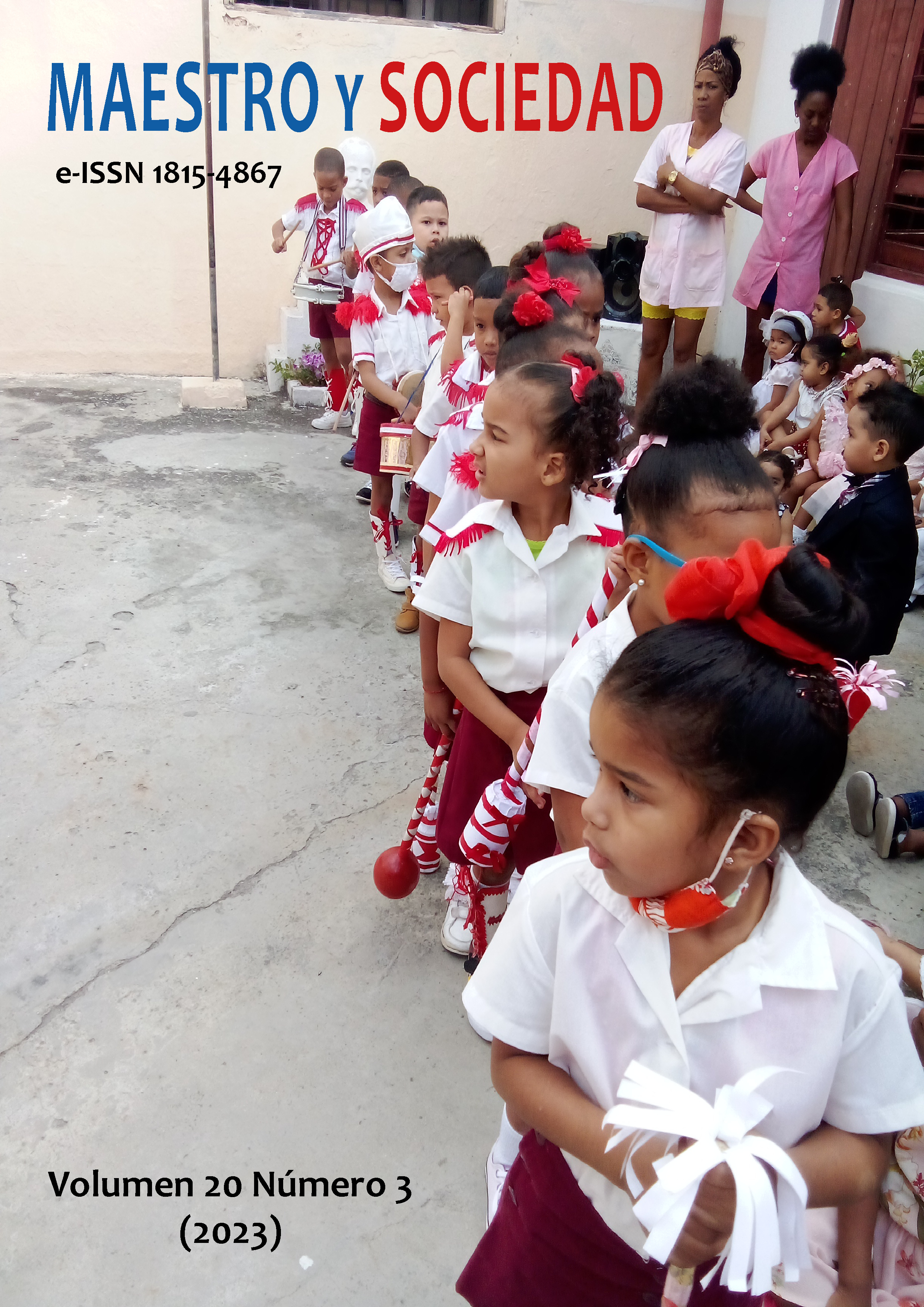The assessment and testing in the classroom context concerning to the reading skills through the teachers perspective
La evaluación y prueba en el contexto del aula concerniente a la habilidad lectora a través de la perspectiva del profesor
Keywords:
evaluación y prueba, el aula, fortaleza y debilidad, profesores y estudiantes de inglés, proceso de enseñanza-aprendizajeAbstract
Introduction: The present article has as main objective to analyze some tests designed by teachers of English with the purpose of assessing the language learning outcomes of the reading skill based on the information and materials provided by Funiber (2019) in the subject “Assessment and Testing in the Classroom” and also based on the experiences as teachers and learners of English as a foreign language. Materials and methods: There are some methods to be considered and taken into account when this article is going to be done. Likewise, In teaching and learning process, to evaluate the students proficiency, ability, knowledge or background, the teachers use different and various techniques to measure or diagnose students ´proficiency or ability on the learning of a language. In order to have a minimums idea of strength and weakness of the students it is important to apply an assessment or testing to diagnose or measuring the student’s knowledge, ability and proficiency. Results and discussion: Within this, evaluation deals with syllabus objectives, course design, materials, methodology, teachers’ performance and assessment. Assessment involves measuring the performance of English learners (students) and the progress they are making, which helps teachers of English to be able to diagnose the problems students have to provide them with useful feedback whereas, testing deals with formal assessment. Conclusions: The discourse indent to be based on the explanation of Evaluation, assessment and testing on the designing of test samples.
References
Bachman, L. F. (1990). Fundamental Considerations in Language Testing. Oxford: Oxford University Press.
Braun, H., Kanjee, A., Bettinger, E., & Kremer, M. (2006). “Improving Education Through Assessment. Innovation and Evaluation,” The American Academy of Arts and Sciences.
Harris, M. & McCann, P. (1994). Assessment. Oxford: Heinemann.
Lennon, A. (2021). Overview of language testing and assessment. In assessment and Testing in the Classroom. Fundación Universitaria Iberoamericana.
Lennon, A. (2020). Overview of language testing and assessment. In Assessment And Testing In The Classroom. Fundación Universitaria Iberoamericana.
Lennon, A. (2019). Formal Assessment. In Assessment And Testing In The Classroom. Fundación Universitaria Iberoamericana.
Lennon, A. (2018) Formal Assessment. In Assessment And Testing In The Classroom. Fundación Universitaria Iberoamericana.
Linn, R. L. (2008). Measurement and Assessment In Teaching. Pearson Education. India.
Lynch, B. K. (2019). Rethinking assessment from a critical perspective. Language Testing, 18(4), 351–372.
Manichander, T. (2016). Assessment in Education. https://www.Lulu.com
O'Malley, J.M. & Chamot, A.U. (1990). Learning Strategies in Second Language Acquisition Cambridge: Cambridge U.P.
Oxford, R. (2021). Language Learning Strategies. What every teacher shoud know New York: Newbury House Publishers.
Skinner, C. E. (2002). Educational Psychology. New Jersey; Prentice-Hall. 4th edition.
Tritschler, K. A. (2000). Barrow & McGee's practical measurement and assessment. Lippincott Williams & Wilkins.
Weiss, C. H. (2020). Evaluation Research: Methods of Assessing Program Effectiveness. Englewood Cliffs (NJ). USA: Prentice-Hall.
Downloads
Published
How to Cite
Issue
Section
License
Copyright (c) 2023 Neves Coquilo António, Eduardo Carlos Sebastião Gomes, Dinis Gilreme Jackson, Amândio Jamba Pedro da Fonseca

This work is licensed under a Creative Commons Attribution-NonCommercial-NoDerivatives 4.0 International License.
This journal provides immediate open access to its content, based on the principle that offering the public free access to research helps a greater global exchange of knowledge. Each author is responsible for the content of each of their articles.



























 Universidad de Oriente
Universidad de Oriente 